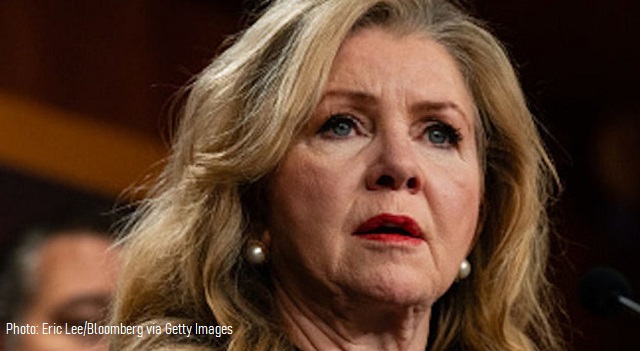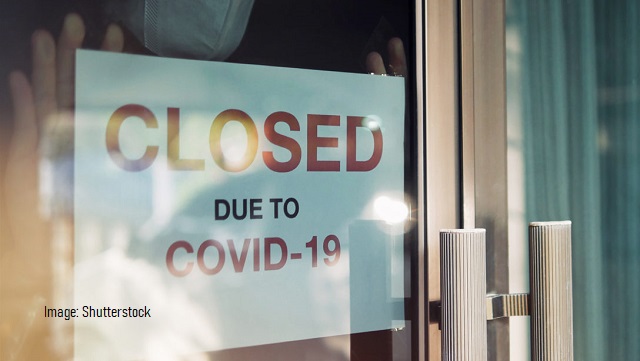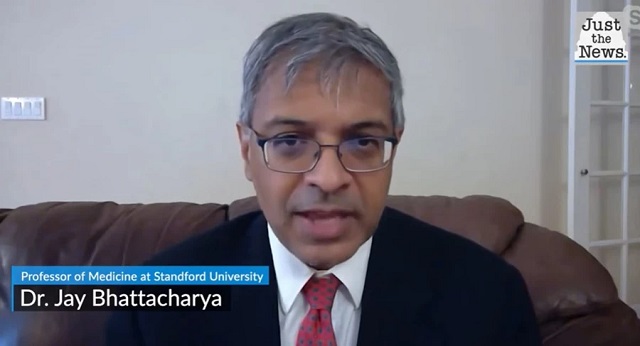Scientists the world over have done a deep dive into the unprecedented lockdowns and injection mandates that characterized the COVID-19 pandemic response. Over and over again, the results confirm what many instinctively knew all along — that these totalitarian schemes didn’t work and may have caused more harm than good.
Despite the writing on the wall, health officials and academics continue to defend the Draconian measures. It’s difficult to admit wrongdoing, especially of this magnitude, but sooner or later it will become widely known that, as Jeffrey Tucker, founder and president of the Brownstone Institute, put it, “these interventions turned a manageable pandemic into a catastrophe.”1
Hundreds of Studies Show Lockdowns Didn’t Work
Public health policies that restrict movement, ban international travel and close schools and businesses, commonly known as lockdowns, were implemented in virtually every country around the globe during the pandemic, beginning in China, then Italy and spreading like wildfire from there.
Simulated computer models conducted by Imperial College London researchers in 2020 suggested that lockdowns would reduce COVID-19 mortality by up to 98%2 — an estimate that had many scholars raising eyebrows, and which did not come to fruition, not even close.
In a literature review and meta-analysis of the effects of lockdowns on COVID-19 mortality, researchers from Johns Hopkins Institute for Applied Economics, Global Health, and the Study of Business Enterprise, Lund University and the Center for Political Studies in Copenhagen, Denmark, revealed lockdowns had little to no effect on COVID-19 mortality.
The meta-analysis included 24 studies separated into three groups: lockdown stringency index studies, shelter-in-place order (SIPO) studies and specific non-pharmaceutical intervention (NPI) studies. They found:3
“An analysis of each of these three groups support the conclusion that lockdowns have had little to no effect on COVID-19 mortality. More specifically, stringency index studies find that lockdowns in Europe and the United States only reduced COVID-19 mortality by 0.2% on average.
SIPOs were also ineffective, only reducing COVID-19 mortality by 2.9% on average. Specific NPI studies also find no broad-based evidence of noticeable effects on COVID-19 mortality.”
The Brownstone Institute actually compiled more than 400 studies showing that lockdowns, restrictions and closures failed to do what was promised.4 Among them is a study by Dr. Gilbert Berdine, an associate professor of medicine at Texas Tech University Health Sciences Center.
It used data on daily mortality rates for COVID-19 to track the course of the pandemic in Sweden, New York, Illinois and Texas, which each used different pandemic responses, and has suggested that lockdowns may turn out to be “the greatest policy error of this generation.”5 This isn’t to say that lockdowns had no noticeable effects, however. While they failed to meaningfully reduce COVID-19 deaths, they took a massive toll on other measures of public health:6
“While this meta-analysis concludes that lockdowns have had little to no public health effects, they have imposed enormous economic and social costs where they have been adopted. In consequence, lockdown policies are ill-founded and should be rejected as a pandemic policy instrument.”
‘Fact Checkers’ Try to Defend Lockdowns
When the Johns Hopkins meta-analysis received some media attention, bringing the dismal results of lockdowns mainstream, “fact checkers” sprung to action to rebut the study.
Among them was the Science Media Centre (SMC),7 variations of which exist in a number of countries, including the U.K., Canada, Australia and New Zealand, with a reported mission to provide “high-quality scientific information” to journalists. Their mission, as stated on their website, is:8
“To provide, for the benefit of the public and policymakers, accurate and evidence-based information about science and engineering through the media, particularly on controversial and headline news stories when most confusion and misinformation occurs.”
But SMC is not an independent news agency as it claims to be, as it counts among its biggest funders a number of high-level industry players with worldwide agendas, including the Wellcome Trust, GlaxoSmithKline, CropLife International, Sanofi and AstraZeneca.9
Tucker teased out a particularly arrogant commentary in the SMC piece — a comment by Seth Flaxman, an associate professor in the department of computer science at the University of Oxford, who said:10
“Smoking causes cancer, the earth is round, and ordering people to stay at home (the correct definition of lockdown) decreases disease transmission. None of this is controversial among scientists. A study purporting to prove the opposite is almost certain to be fundamentally flawed.”
But categorizing lockdowns as completely without controversy, like the fact that smoking causes cancer, is wrong. Yet, Flaxman’s work is continually cited in defense of lockdowns, even though he has no background in medicine. Tucker wrote:11
“See how this rhetoric works? If you question his claim, you are not a scientist; you are denying the science! … To say that this is not controversial is ridiculous, since such policies had never before been attempted on this scale. Such a policy is not at all like an established causal claim (smoking increases cancer risk) nor a mere empirical observation (the earth is round). It is subject to verification.
… That Flaxman would still claim otherwise after all experience
Injection Mandates Counterproductive and Harmful
shows that he is not observing reality but inventing dogma from his own intuition. Flaxman might say that he is sure that transmission might have been higher had people not been ordered to stay home, and there might be settings in which that is true, but he is in no position to elevate this claim to the status of ‘the earth is round.’
… The dogma that ordering people to stay home – for how long? – always reduces the spread comes not from evidence but from Flaxman-style modeling plus a remarkable capacity to ignore reality.”
The rapid emergence of widespread COVID-19 injection mandates, vaccine passports and restrictions based on injection status is also unprecedented and led to controversy on ethical, scientific and political grounds.
A team of 12 researchers from Johns Hopkins School of Public Health, Harvard Medical School, the University of Oxford and other institutions outlined key reasons why these mandates have been counterproductive and harmful.12
“While vaccine policies have largely been framed as offering ‘benefits’ with freedoms for those who take up a full COVID-19 vaccination series, they include elements that are punitive, discriminatory and coercive, including conditioning access to health, work, travel and social life on vaccination status in many settings,” the preprint paper reads.13
Four domains are explored, with potential unintended consequences of injection mandates outlined as follows:
- Behavioral psychology — COVID-19 injection mandates could lead to reactance and entrenchment, cognitive dissonance, stigma and scapegoating, conspiracy theories and distrust
- Political and legal effects — Injection mandates could cause erosion of civil liberties, polarization and disunity in global health governance
- Socio-economics — Injection mandates could cause disparity and inequality, reduced health system capacity and exclusion from work and social life
- Integrity of science and public health — Consequences include erosion of informed consent, trust in public health policy and trust in regulatory oversight
The authors maintain that segregating society into those who have gotten the shots and those who have not, while restricting access to work and education based on injection status, is a violation of human rights that’s promoting social polarization and adversely affecting health and well-being. In light of this, they note:14
“The adoption of new vaccination status policies has provoked a multilayered global and local backlash, resistance and polarization that threaten to escalate if current policies continue. It is important to emphasize that these policies are not viewed as “incentives” or “nudges” by substantial proportions of populations, especially in marginalized, underserved, or low COVID-19-risk groups.
Denying individuals education, livelihoods, medical care, or social life unless they get vaccinated does not appear to coincide with constitutional and bioethical principles, especially in liberal democracies.
While public support appears to have consolidated behind these policies in many countries, we should acknowledge that human rights frameworks were designed to ensure that rights are respected and promoted even during public health emergencies.
… We argue that current COVID-19 vaccine policies should be reevaluated in light of negative consequences that may outweigh benefits. Leveraging empowering strategies based on trust and public consultation represent a more sustainable approach for protecting those at highest risk of COVID-19 morbidity and mortality and the health and wellbeing of the public.”
2006 Study: Lockdowns Don’t Work
In 2006, public health officials went through a list of mitigation actions that could be used in the event of pandemic influenza, along with their potential repercussions.15
Lockdowns, including quarantine and extended school closures, were not recommended, as this overriding principle was explained: “Experience has shown that communities faced with epidemics or other adverse events respond best and with the least anxiety when the normal social functioning of the community is least disrupted.”
In the case of quarantines, the researchers explained there is “no basis” for quarantining either groups or individuals, as it raises “formidable” problems. “Secondary effects of absenteeism and community disruption as well as possible adverse consequences, such as loss of public trust in government and stigmatization of quarantined people and groups, are likely to be considerable,” they noted.16
Closure of schools beyond 10 to 14 days was also not recommended, unless all other points of contact, such as restaurants and churches, were also closed. But, they noted, “Such widespread closures, sustained throughout the pandemic, would almost certainly have serious adverse social and economic effects.”17
They also advised against cancelling or postponing meetings or events involving large numbers of people, explaining that “cancelling or postponing large meetings would not be likely to have any significant effect on the development of the epidemic” and “… communitywide closure of public events seems inadvisable.”18 Still, Tucker wrote, “a decade and a half later, governments all over the world tried lockdowns anyway.”19
With increasing recognition that lockdowns were useless and COVID-19 injections don’t work as advertised, people are rebelling. COVID-19 shots were supposed to set you free and bring life back to what it looked like in 2019 — no masks, no lockdowns and freedom for everyone, regardless of vaccination status.
Lockdowns, too, were supposed to be a means to an end — an end to the pandemic that, two years later, is still going strong. If you don’t agree with COVID-19 restrictions and mandates in your area, now is the time to speak out in peaceful protest in order to compel positive changes in support of health and overall freedom.
EDITORS NOTE: This MERCOLA column is republished with permission. ©All rights reserved.



